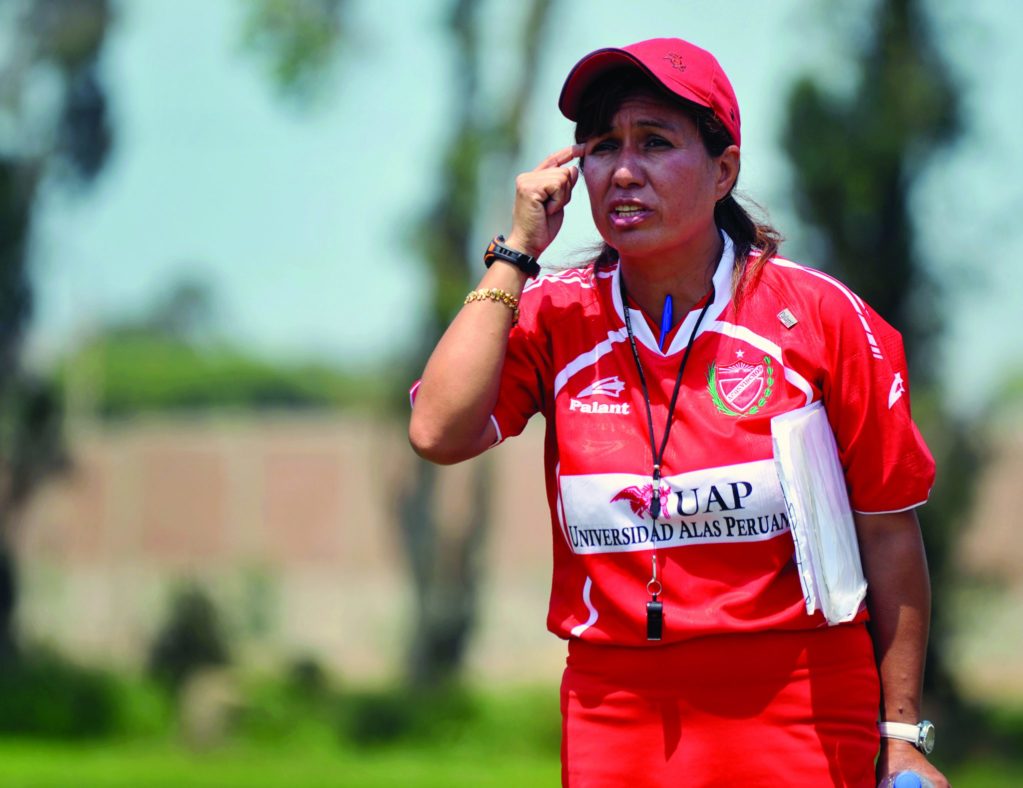This month I pay tribute to the role women have played in shaping world football.
For it is undeniable that they play a major role, not just in the playing of the sport, but also in the administration and growth of the game.
Let me start with the playing of the game—more and more women are taking to the field than ever before. This is against the financial tide. Corporates are only too happy to give millions to men’s leagues, but remain reluctant to do so for women.
The reasons for this are: the men’s game has a greater reach among the public; is generally more competitive and attracts television. It is an easy sell.
But let me tell you something, gentlemen, women are catching up. At the 2011 FIFA Women’s World Cup in Germany, the match between the host nation and Canada sold out and drew a domestic audience of 18 million television viewers, or nearly a quarter of the country’s population. To put that in perspective, that is 10% higher than the viewership for the match between the men’s teams of Germany and Serbia at the 2010 FIFA World Cup in South Africa. This shows that women’s football can capture the imagination of fans.
The 2011 tournament in Germany was screened in 181 countries, with an estimated audience of almost 408 million. The average viewership per match was more than 13 million, up almost 20% from four years earlier.
The World Cup for women has only been around since 1991; the competition is carving out a niche. That first event, staged in China, featured 12 nations, but the 2015 finals in Canada will see 24 teams compete, just shy of the 32 that appear in the men’s tournament.
What is clear is that there is a fast growing demand for women’s football. It is a part of the global game that can no longer be ignored and this is something FIFA understands very well. The organization is a strong proponent of the women’s game because they see it is vital for the future of the sport.
But it is not just on the pitch where women are making a huge contribution to the advancement of the sport.
Recently, Burundi Football Association president Lydia Nsekera became the first women to be voted onto FIFA’s executive committee, followed shortly by Moya Dodd from Australia and Sonia Bien-Aime from the Turks and Caicos Islands. The latter two are co-opted members for one year, but it shows that women are starting to make their mark at the highest level of decision-making. Anybody who believes that these appointments are mere window dressing, should think again.
First of all, these candidates won via a vote among hundreds of delegates. They have arguably had to work harder, show more ingenuity and face greater challenges than any of the men to earn these jobs.
With the first few appointments having been made, it will surely not be too long before the ratio of men to women on the FIFA executive narrows. The elevation of women into key positions in the sport is not just a FIFA phenomenon, it is happening around the world.
In South Africa, the future of the game is being plotted by the highly-respected Fran Hilton-Smith, who is acting technical director of the South African Football Association.
This is the first time that a member association has placed a woman into the technical director’s role that looks after both the men’s and women’s game in a country.
And closer to home, there is a woman on the Football Association of Zambia executive committee that I head. Lenny Nkhuwa has proven to be an excellent administrator. With her in charge of women’s football, Zambia enjoyed success with the U-20 national team beating South Africa 1-0 in the final, to win the Africa Zone Six Women Football Championship in November. In Zambia, over the past three years we have insisted that the Women’s senior, U-20 and U-17 teams, be in the hands of women. We must be one of the few countries in Africa with an all-female technical bench.
There are numerous women club owners and CEOs and within companies that supply services to the football industry. Where this previously may have been rare, it is now commonplace.
The question often asked is whether a woman might one day coach a top professional men’s team. I think it is probably inevitable, though how long it is going to take, I cannot say. It is likely that we are talking years rather than decades.
There is the notable case of Bolivian Nelfi Ibanez. The homemaker, who studied numerous coaching courses, took charge of a professional men’s team in Peru, albeit in the second tier. It has started to happen in other sports too; in basketball women have become assistant coaches of professional teams.
Certainly, in terms of knowledge and the skillset needed to coach, I cannot see why any woman would not be able to acquire these in the same way that men do. The language of football can be spoken beautifully by either gender.
